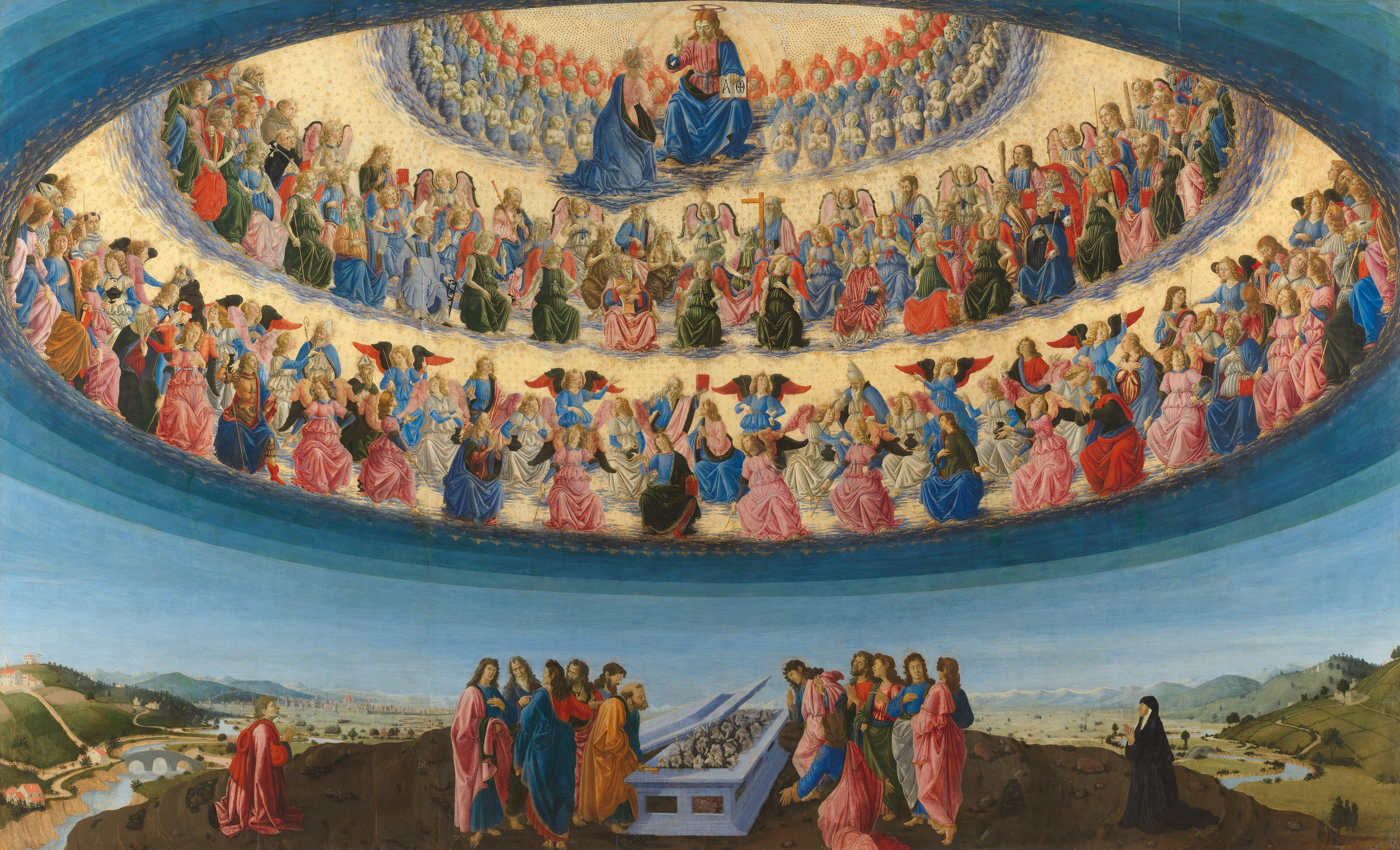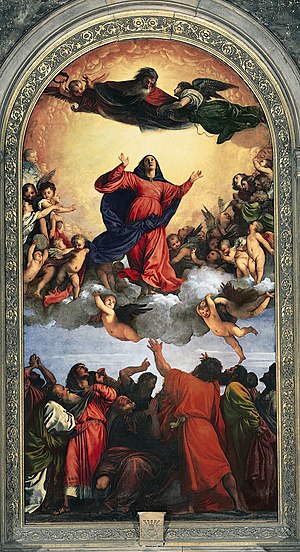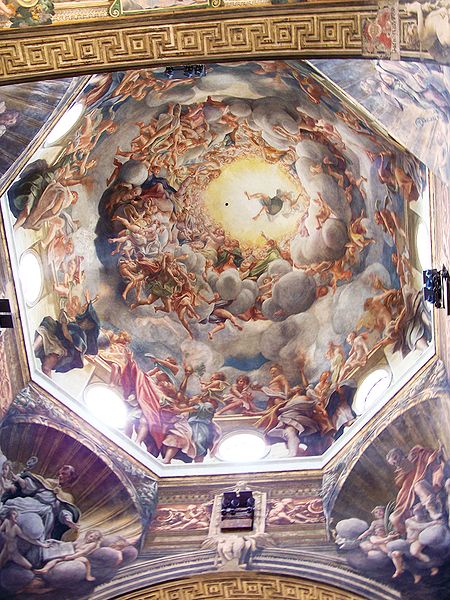Skip to comments.
Intended Catholic Dictatorship
Independent Individualist ^
| 8/27/10
| Reginald Firehammer
Posted on 08/27/2010 11:45:13 AM PDT by Hank Kerchief
Intended Catholic Dictatorship
The ultimate intention of Catholicism is the restoration of the Holy Roman Empire. That has always been the ambition, at least covertly, but now it is being promoted overtly and openly.
The purpose of this article is only to make that intention clear. It is not a criticism of Catholics or Catholicism (unless you happen to think a Catholic dictatorship is not a good thing).
The most important point is to understand that when a Catholic talks about liberty or freedom, it is not individual liberty that is meant, not the freedom to live one's life as a responsible individual with the freedom to believe as one chooses, not the freedom to pursue happiness, not the freedom to produce and keep what one has produced as their property. What Catholicism means by freedom, is freedom to be a Catholic, in obedience to the dictates of Rome.
The Intentions Made Plain
The following is from the book Revolution and Counter-Revolution:
|
"B. Catholic Culture and Civilization
"Therefore, the ideal of the Counter-Revolution is to restore and promote Catholic culture and civilization. This theme would not be sufficiently enunciated if it did not contain a definition of what we understand by Catholic culture and Catholic civilization. We realize that the terms civilization and culture are used in many different senses. Obviously, it is not our intention here to take a position on a question of terminology. We limit ourselves to using these words as relatively precise labels to indicate certain realities. We are more concerned with providing a sound idea of these realities than with debating terminology.
"A soul in the state of grace possesses all virtues to a greater or lesser degree. Illuminated by faith, it has the elements to form the only true vision of the universe.
"The fundamental element of Catholic culture is the vision of the universe elaborated according to the doctrine of the Church. This culture includes not only the learning, that is, the possession of the information needed for such an elaboration, but also the analysis and coordination of this information according to Catholic doctrine. This culture is not restricted to the theological, philosophical, or scientific field, but encompasses the breadth of human knowledge; it is reflected in the arts and implies the affirmation of values that permeate all aspects of life.
"Catholic civilization is the structuring of all human relations, of all human institutions, and of the State itself according to the doctrine of the Church.
|
Got that? "Catholic civilization is the structuring of all human relations, of all human institutions, and of the State itself according to the doctrine of the Church." The other name for this is called "totalitarianism," the complete rule of every aspect of life.
This book and WEB sites like that where it is found are spreading like wildfire. These people do not believe the hope of America is the restoration of the liberties the founders sought to guarantee, these people believe the only hope for America is Fatima. Really!
In Their Own Words
The following is from the site, "RealCatholicTV." It is a plain call for a "benevolent dictatorship, a Catholic monarch;" their own words. They even suggest that when the "Lord's Payer," is recited, it is just such a Catholic dictatorship that is being prayed for.
[View video in original here or on Youtube. Will not show in FR.]
Two Comments
First, in this country, freedom of speech means that anyone may express any view no matter how much anyone else disagrees with that view, or is offended by it. I totally defend that meaning of freedom of speech.
This is what Catholics believe, and quite frankly, I do not see how any consistent Catholic could disagree with it, though I suspect some may. I have no objection to their promoting those views, because it is what they believe. Quite frankly I am delighted they are expressing them openly. For one thing, it makes it much easier to understand Catholic dialog, and what they mean by the words they use.
Secondly, I think if their views were actually implemented, it would mean the end true freedom, of course, but I do not believe there is any such danger.
—Reginald Firehammer (06/28/10)
TOPICS: Activism; Catholic; Religion & Culture; Religion & Politics
KEYWORDS: individualliberty
Navigation: use the links below to view more comments.
first previous 1-20 ... 8,641-8,660, 8,661-8,680, 8,681-8,700 ... 15,821-15,828 next last
To: Dr. Eckleburg
It is presumption to think "well, I'll just go ahead and sin and God will forgive me". It is presumption to believe "I'll go get drunk tonight, go to confession on Saturday and be fine for Sunday". It is
presuming upon God's mercy. It is the attitude which produces the belief that nothing can separate us from God, so let's go do it all.
It is markedly different from knowing that God will forgive a contrite heart.
Presumption is the red headed step sister of despair.
8,661
posted on
10/04/2010 10:08:37 PM PDT
by
Legatus
(Keep calm and carry on)
To: Legatus
Good thing most Christians I know don’t believe that.
To: Dr. Eckleburg
Didn’t St. Paul say, “It is no longer I who live, but Christ who lives in me.”
So, was St. Paul an “alter Christus”?
8,663
posted on
10/04/2010 10:28:04 PM PDT
by
Judith Anne
(Holy Mary, Mother of God, please pray for us sinners now and at the hour of our death.)
To: Dr. Eckleburg
One of the great virtues of the English language is it's ability to borrow from other languages so easily. Look at that word “theo logical”!
For an interesting book on the English language see The Story of English, the companion volume to the PBS series of the same name.
8,664
posted on
10/04/2010 10:28:12 PM PDT
by
count-your-change
(You don't have be brilliant, not being stupid is enough.)
To: Dr. Eckleburg; Natural Law; Legatus; maryz; MarkBsnr
Psalm 123
A song of ascents.
1 I lift up my eyes to you,
to you whose throne is in heaven.
2 As the eyes of slaves look to the hand of their master,
as the eyes of a maid look to the hand of her mistress,
so our eyes look to the LORD our God,
till he shows us his mercy.
3 Have mercy on us, O LORD, have mercy on us,
for we have endured much contempt.
4 We have endured much ridicule from the proud,
much contempt from the arrogant.
I thought I would share this psalm with my FRiends, since there seems to be a lot of arrogance in the Calvinist posts.
8,665
posted on
10/04/2010 10:37:35 PM PDT
by
Judith Anne
(Holy Mary, Mother of God, please pray for us sinners now and at the hour of our death.)
To: Dr. Eckleburg
I guess it just got lost in translation. ;o)
8,666
posted on
10/04/2010 11:10:31 PM PDT
by
boatbums
(God is ready to assume full responsibility for the life wholly yielded to him.)
To: Legatus
Romans 6:1-6
1What shall we say, then? Shall we go on sinning so that grace may increase?
2By no means! We died to sin; how can we live in it any longer?
3Or don’t you know that all of us who were baptized into Christ Jesus were baptized into his death?
4We were therefore buried with him through baptism into death in order that, just as Christ was raised from the dead through the glory of the Father, we too may live a new life.
5If we have been united with him like this in his death, we will certainly also be united with him in his resurrection.
6For we know that our old self was crucified with him so that the body of sin might be done away with, that we should no longer be slaves to sin—
8,667
posted on
10/04/2010 11:16:55 PM PDT
by
boatbums
(God is ready to assume full responsibility for the life wholly yielded to him.)
To: Dr. Eckleburg
English is the most intricate of languages. Read the Bible and see some of it.Superior to the greek originals?
8,668
posted on
10/04/2010 11:37:06 PM PDT
by
D-fendr
(Deus non alligatur sacramentis sed nos alligamur.)
To: boatbums
Exactly.
I will readily but sadly admit that there are many people claiming the title of Catholic who, in complete disregard for what the Church teaches, live their lives as if they were impeccable (incapable of sinning). Now, we Catholics could define sin as willful opposition to the knowable Will of God, indeed that's my working definition at least.
Now it seems to me based on what I've observed that there are an awful lot of "Reformed" (oh... btw: "reformed"... does anyone have any respect for whatever it is that calls itself "Reformed" Judaism? If you want to know what Jews believe do you go to a "Reformed" Jew or an Orthodox Jew? I see parallels with Christianity, but that really is a digression.) Anyhow I've observed that there are an awful lot of "Reformed" Christians who give every appearance, in theory and in practice, that they could (and do) go on sinning without repenting and because they've "said the magic words" of the sinner's prayer they are home free.
Every once in a while when confronted with that someone will say "Well they're insane and I/we don't believe that" and I say: Fine, then stop blaming Catholicism for people who don't take what the Church teaches seriously. More often than not though people will mount some sort of defense that Reformed Christians really do believe that way. One woman used an elaborate example of a parent who would never stop loving a child even if the child turned his back on his parents. My first thought was "yeah get back to me on that when you find out just how gay your son really is".
My second and more theologically pertinent, less snarky thought is that for a creature consumed with the love of self, Heaven will be hell. Sometimes someone will raise a very vague notion that there will be some sort of punishment (one person said God would give a "Whupping") due to sin but that a person who has said the sinner's prayer will still enter Heaven. Whenever I ask "oh you mean sort of like purgatory?" there's this sort of deer in headlights thing that happens and "oh my gosh, look at the time, I have to be in Prague by noon yesterday!"
Did you know the Catholic Church teaches that if you are sorry for offending God because you love God that God forgives you immediately? Furthermore if a person has the intention to confess sacramentally and dies before fulfilling that intention God doesn't condemn based on a technicality. For the sake of brevity (hah) I've left some gaping holes in this paragraph but the fact remains that's the case.
What blew my mind was the idea of “Guaranteed Salvation” being a Catholic principle when we don't even have terms like "eternal security" or "Once saved always saved". The idea that one could "continue my sinful life and still be saved" is absolutely foreign to Catholicism and my own experience tells me that if someone wants "guaranteed salvation" that permits the continuation of a sinful life one needs to go sign up for Calvinism because we have no tickets for that particular ride.
8,669
posted on
10/05/2010 12:36:49 AM PDT
by
Legatus
(Keep calm and carry on)
To: count-your-change
Doctrine simply means a set of principles or beliefs whether of religion or whatever. Exactly. And the pagans didn't have it. Have you ever heard of anything in any form of paganism comparable to, say, the raging theological debates about the nature of the Trinity or the Incarnation? Just didn't happen. Even Judaism was never and is not credal in that sense.
8,670
posted on
10/05/2010 2:34:33 AM PDT
by
maryz
To: RnMomof7
The scripture is inspired by God, and the Church is guided by God in its interpretation. Individual readers of scripture are not guaranteed divine inspiration.
8,671
posted on
10/05/2010 2:37:43 AM PDT
by
maryz
To: RnMomof7
"Love thy Neighbor as thyself," which is of course "like to" the greatest commandment and flows from it. Can anyone really do that ? Can anyone really love God with his whole heart, with his whole soul, with his whole strength and with his whole mind? Is failure sufficient excuse to dismiss the commandment? Surely, if Christ had added, "but you can't, so don't even bother to try," the evangelist would have added it. And the two commandments are intimately connected: "If a man say, I love God, and hateth his brother, he is a liar: for he that loveth not his brother whom he hath seen, how can he love God whom he hath not seen?"
If ye have faith as a grain of mustard seed, ye shall say unto this mountain, Remove hence to yonder place; and it shall remove; and nothing shall be impossible unto you.
Does this mean faith is impossible, so we're exempt? Even allowing for Semitic hyperbole, it's a pretty high bar!
8,672
posted on
10/05/2010 2:55:01 AM PDT
by
maryz
To: Legatus
You know what else gets sanctified in the Christian religion? PEOPLE! Thanks for stating it so clearly! :)
8,673
posted on
10/05/2010 5:06:57 AM PDT
by
maryz
To: Dr. Eckleburg
Still BUPKISS - I am not denying the use of the term alter Christus by the Church I am objecting to your continual use of a mangled, manipulated, and false translation of it. One has to wonder what your motivation is to keep propagating a known falsehood in light of the many corrections you have been provided.
8,674
posted on
10/05/2010 5:26:46 AM PDT
by
Natural Law
(A lie is a known untruth expressed as truth. A liar is the one who tells it.)
To: Dr. Eckleburg; Judith Anne; stfassisi; NYer; Salvation; Pyro7480; Coleus; narses; annalex; ...
Judith wrote:
For 1800 years, Catholics believed Mary was assumed into heaven. It wasn't formalized until Pope Pius XII. But way back in the very early church it was believed and taught.
To which you responded:
Wrong. It was a recent and impious speculation that turned into RC doctrine just over a century ago.
Perhaps you can explain why the Orthodox also celebrate it as the Dormition of the Theotokos? The Schism was in the 12th century.
Perhaps you can explain some of this "recent" artwork:

"Assumption of the Virgin" by Carracci, 1590

"Assumption of the Virgin" by Carracci, 1600-01

"The Assumption of the Virgin" by Botticini, 1475-76

"Assumption of the Virgin Mary" by Peter Paul Rubens, 1626

"Assumption of the Virgin" by Titian, 1516-18

"Assumption of the Virgin" by Correggio, 1526-30
8,675
posted on
10/05/2010 5:34:28 AM PDT
by
wagglebee
("A political party cannot be all things to all people." -- Ronald Reagan, 3/1/75)
To: stfassisi
Does anyone here want to deny these practices were never taught or approved of by Jesus or the apostles? That they were added to Catholic practice after Constantine mixed paganism with Christianity?
To: RnMomof7
More big talk.
Prove that Constantine added anything to Christianity, much less pagan things.
8,677
posted on
10/05/2010 5:44:35 AM PDT
by
MarkBsnr
( I would not believe in the Gospel if the authority of the Catholic Church did not move me to do so.)
To: RnMomof7
Does anyone here want to deny these practices were never taught or approved of by Jesus or the apostles? That they were added to Catholic practice after Constantine mixed paganism with Christianity?Why muddy up the question in the first sentence with the highly debatable charge in the second? How does this further discourse?
8,678
posted on
10/05/2010 5:50:57 AM PDT
by
Mad Dawg
(Oh Mary, conceived without sin, pray for us who have recourse to thee.)
To: Natural Law; Dr. Eckleburg
When a Freeper posts nearly word for word from those banned sites I felt it necessary to point it out. It worries me that you would be so familiar with "those banned sites" as to immediately know when something posted is "nearly word for word" the same.
Worried, but not surprised. I'm guessing you've spent a lot of time at those banned sites.
8,679
posted on
10/05/2010 5:53:57 AM PDT
by
Alex Murphy
("Posting news feeds, making eyes bleed, he's hated on seven continents")
To: Alex Murphy
"It worries me that you would be so familiar with "those banned sites" as to immediately know when something posted is "nearly word for word" the same."We are all familiar with the content of those sites because the content has been posted here, albeit unattributed, by anti-Catholics for years. It is useful to know the source, it helps characterize the post and the poster. They are not half as clever as they think they are.
8,680
posted on
10/05/2010 6:04:18 AM PDT
by
Natural Law
(A lie is a known untruth expressed as truth. A liar is the one who tells it.)
Navigation: use the links below to view more comments.
first previous 1-20 ... 8,641-8,660, 8,661-8,680, 8,681-8,700 ... 15,821-15,828 next last
Disclaimer:
Opinions posted on Free Republic are those of the individual
posters and do not necessarily represent the opinion of Free Republic or its
management. All materials posted herein are protected by copyright law and the
exemption for fair use of copyrighted works.
FreeRepublic.com is powered by software copyright 2000-2008 John Robinson





